Projects since 2022
(1) Counterintuitive Building Types
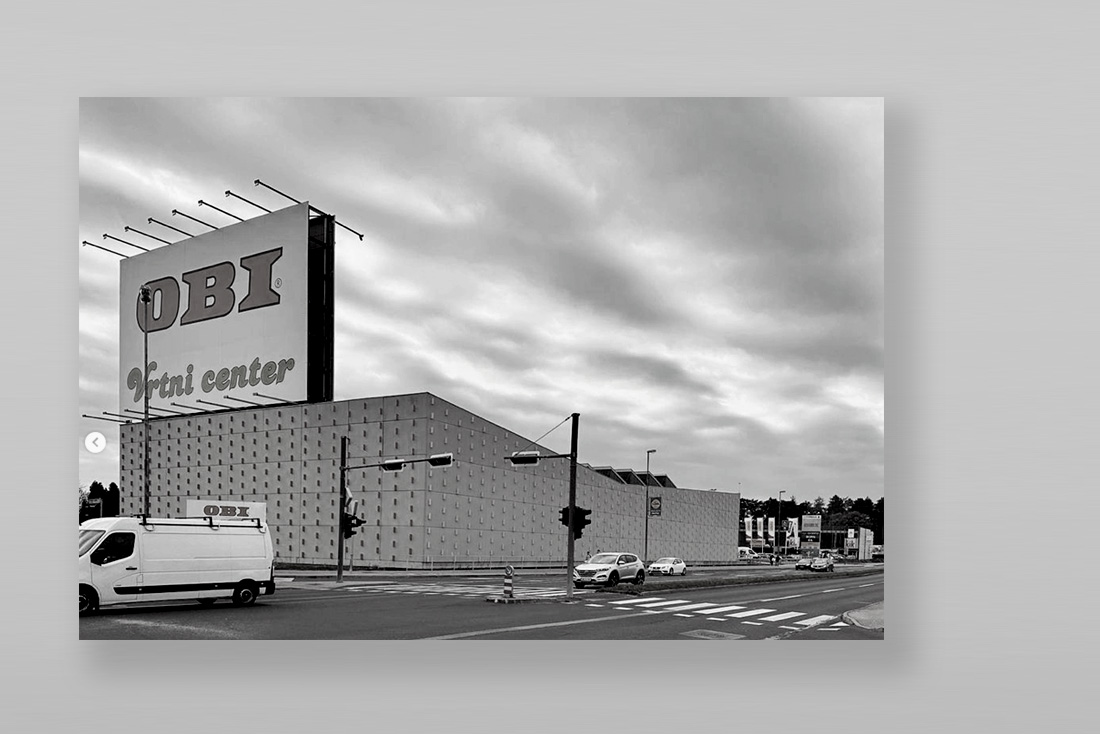
CBT - Counterintuitive Building Types
Funded by the Austrian Research Promotion Agency (FFG) at TU Graz (2022–2025), this research investigates the upcycling and repair of Austrian strip-mall typologies. Beyond mere technical retrofitting, CBT reframes these neglected commercial architectures as critical sites of ecological transformation and typological reinvention, questioning how peripheral building forms can be re-entered into cultural, social, and urban discourse.
(More)
(2) Architectural Affordances

Architectural Affordances – Typologies of Umbau
A fellowship, research project, and publication developed in collaboration with the Politecnico di Milano, Department of Architecture and Urban Studies (DAStU), and Gennaro Postiglione. The project explores typology as a lens for adaptive reuse (Umbau), framing architecture as an ecology of affordances that mediate between history, use, and transformation (2022–2025).
(More)
(3) Peripheries - Peripherocene
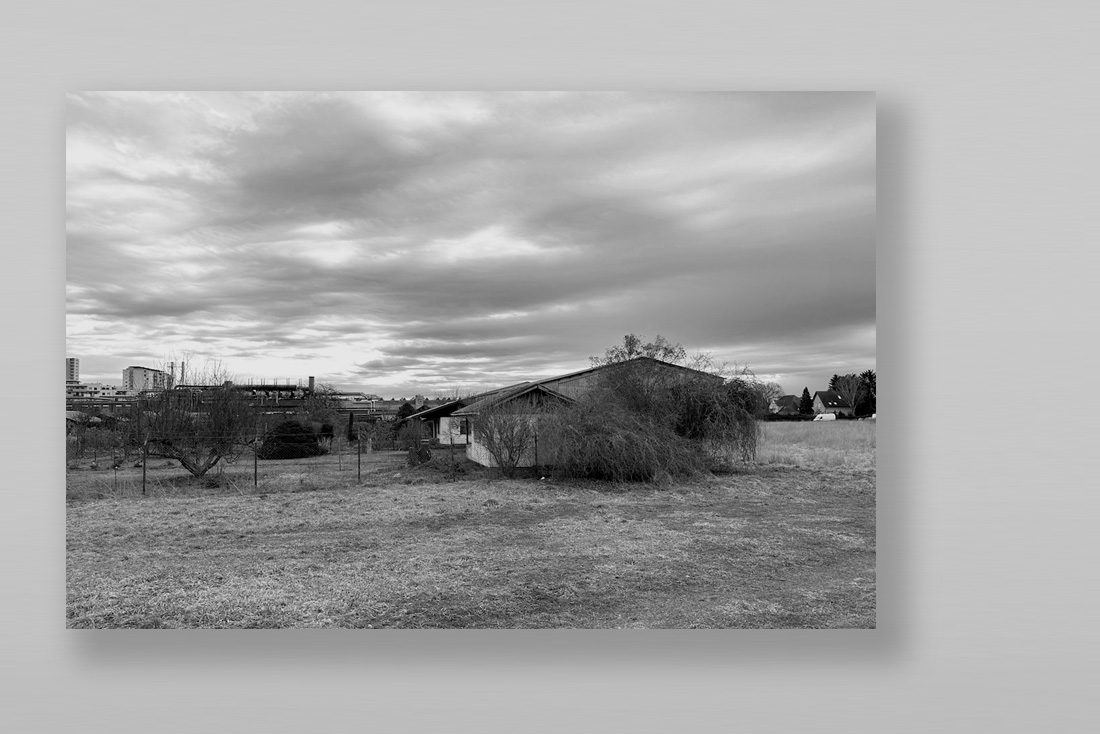
Special Issue – The Journal of Architecture
In collaboration with Cameron McEwan (Northumbria University, Newcastle upon Tyne), this research project (2023–2026) examines the role of peripheries in contemporary architecture and urbanism. The work will result in a guest-edited special issue of The Journal of Architecture, bringing together critical perspectives on typology, representation, and peripheral conditions.
(More)
(4) Hybrid Practices
Archnet-IJAR: International Journal of Architectural Research
![]()
Peer-review and editorial work · Guest editorship for a special issue on Hybrid Practices: Practice/Design/Theory-Based Research in Architecture, 2026 with Cameron McEwan
This special issue examines the intersections of architectural practice, design, and theory as critical modes of research, articulating how hybrid methodologies generate new knowledge for pressing issues. If there is anything that living in the Anthropocene tells us, it is that the stability of disciplinary certainties and methods may no longer be adequate. We seek contributions that amplify reflection within architectural theory and design research yet push at the discipline’s methodological and theoretical boundaries to address urgent ecological, political, and urban challenges … studies that critically engage with design research, speculative experimentation, and interdisciplinary inquiry … how pragmatic problem-solving engages speculative thinking about alternative futures, or how theoretical close readings bear on the facts and forms of climate change, or how extraction critique and typological readings generate alternative approaches to peripheral urbanisation …
Archnet-IJAR: International Journal of Architectural Research

Peer-review and editorial work · Guest editorship for a special issue on Hybrid Practices: Practice/Design/Theory-Based Research in Architecture, 2026 with Cameron McEwan
This special issue examines the intersections of architectural practice, design, and theory as critical modes of research, articulating how hybrid methodologies generate new knowledge for pressing issues. If there is anything that living in the Anthropocene tells us, it is that the stability of disciplinary certainties and methods may no longer be adequate. We seek contributions that amplify reflection within architectural theory and design research yet push at the discipline’s methodological and theoretical boundaries to address urgent ecological, political, and urban challenges … studies that critically engage with design research, speculative experimentation, and interdisciplinary inquiry … how pragmatic problem-solving engages speculative thinking about alternative futures, or how theoretical close readings bear on the facts and forms of climate change, or how extraction critique and typological readings generate alternative approaches to peripheral urbanisation …
(5) Doctoral Dissertation Ena Kukić
Memoryscapes of Post-Yugoslavia - Toward a Typology of Monumental Semiosis
![]()
This dissertation investigates how memory is inscribed in space through architectural form and spatial presence in the post-Yugoslav context. What kind of spatial framework underpins collective memory in this region—and how can architecture serve as both a medium and a record of memorialization? The project seeks to outline a typology of memoryscapes grounded in regional practices, using semiotic analysis to interpret how meaning is layered or transformed across different historical and political contexts.
PhD Candidate: Ena Kukić
Supervisor: Andreas Lechner
Doctoral School TU Graz
Memoryscapes of Post-Yugoslavia - Toward a Typology of Monumental Semiosis
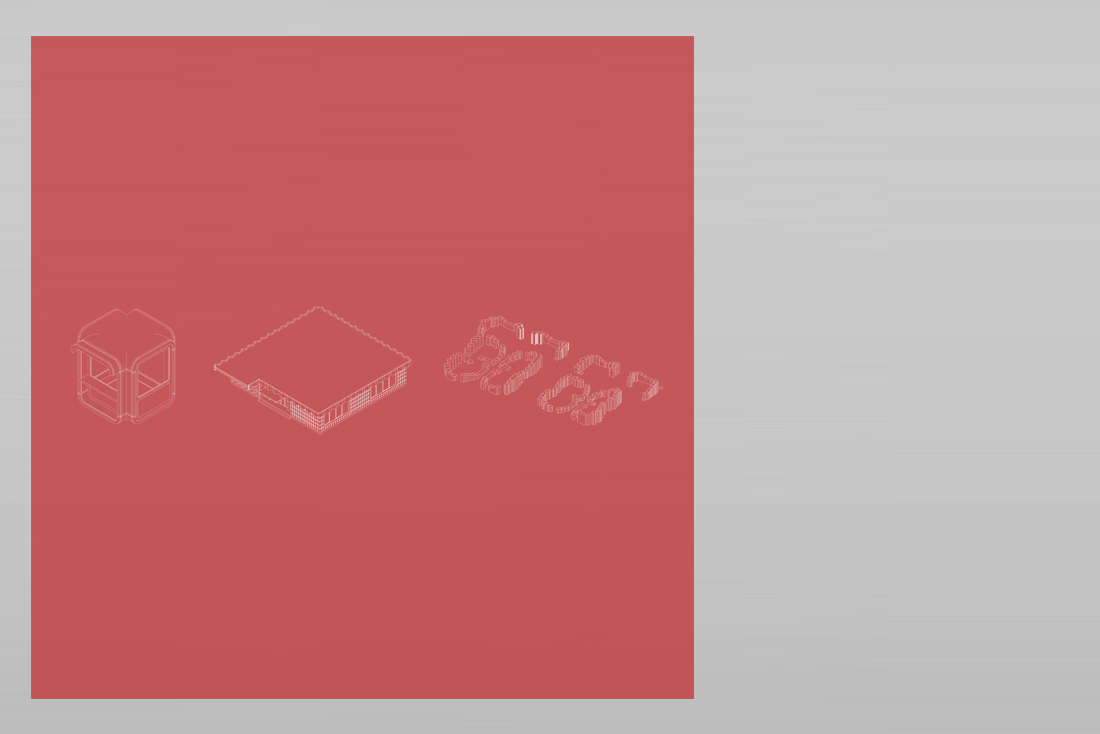
This dissertation investigates how memory is inscribed in space through architectural form and spatial presence in the post-Yugoslav context. What kind of spatial framework underpins collective memory in this region—and how can architecture serve as both a medium and a record of memorialization? The project seeks to outline a typology of memoryscapes grounded in regional practices, using semiotic analysis to interpret how meaning is layered or transformed across different historical and political contexts.
PhD Candidate: Ena Kukić
Supervisor: Andreas Lechner
Doctoral School TU Graz
(6) Doctoral Dissertation Sabine Kastner
Sports and Social Clubs - A Buenos Aires Typology
![]()
What impulses for contemporary typological questions in architecture, particularly concerning transformation and re-development, can be drawn from an engagement with the Argentinian Clubes Sociales y Deportivos? Can the analysis of these club buildings yield a typology of socially adaptable architecture—one that allows for continuous transformation and adaptation to societal change? The project investigates to what extent these incrementally developed clubs, through their spatial and typological origins, offer models for a diachronic architecture that renders the transformation of its structure intelligible. The focus is on identifying structural parameters that enable sustainable transformation and on exploring the emancipatory potential of architecture within a critique of capitalist logics.
PhD Candidate: Sabine Kastner
Supervisor: Andreas Lechner
Doctoral School TU Graz
Sports and Social Clubs - A Buenos Aires Typology

What impulses for contemporary typological questions in architecture, particularly concerning transformation and re-development, can be drawn from an engagement with the Argentinian Clubes Sociales y Deportivos? Can the analysis of these club buildings yield a typology of socially adaptable architecture—one that allows for continuous transformation and adaptation to societal change? The project investigates to what extent these incrementally developed clubs, through their spatial and typological origins, offer models for a diachronic architecture that renders the transformation of its structure intelligible. The focus is on identifying structural parameters that enable sustainable transformation and on exploring the emancipatory potential of architecture within a critique of capitalist logics.
PhD Candidate: Sabine Kastner
Supervisor: Andreas Lechner
Doctoral School TU Graz
(7) Thinking Design
Thinking Design: Blueprint for an Architecture of Typology (Park Books, 2021)
![]()
In this book, Andreas Lechner rethinks typology not as a catalogue of fixed models, but as a living, projective method. Tracing 144 significant civic buildings—from theatres and museums to factories and hospitals—across centuries and geographies, Thinking Design offers a blueprint for how architecture both remembers and transforms.
Organised around the triad of Tectonics, Type, and Topos, the book discloses how building types are not neutral classifications but cultural instruments: they sediment memory, negotiate social norms, and anticipate new ways of living. With meticulously redrawn plans, sections, and axonometrics, Lechner turns the typological lens into a tool of design thinking—bridging history, critique, and practice.
Architecture, at its most rigorous, is never only about form, but about the enduring structures through which societies shape their collective life.
(More)
Thinking Design: Blueprint for an Architecture of Typology (Park Books, 2021)
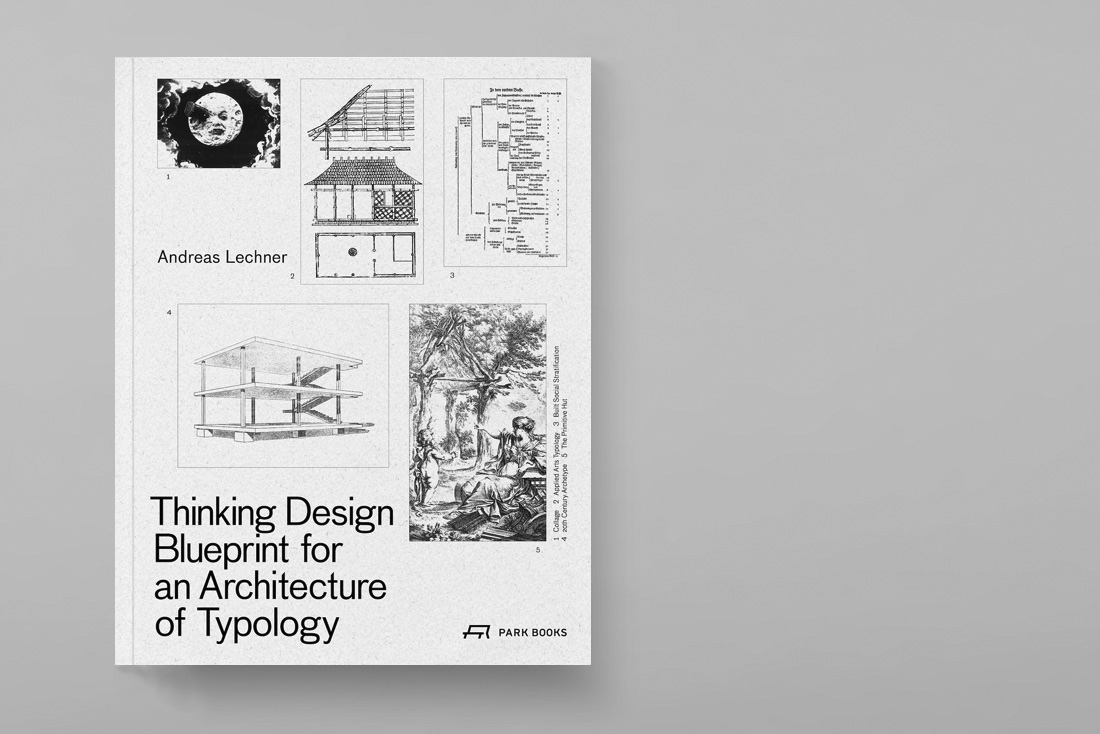
In this book, Andreas Lechner rethinks typology not as a catalogue of fixed models, but as a living, projective method. Tracing 144 significant civic buildings—from theatres and museums to factories and hospitals—across centuries and geographies, Thinking Design offers a blueprint for how architecture both remembers and transforms.
Organised around the triad of Tectonics, Type, and Topos, the book discloses how building types are not neutral classifications but cultural instruments: they sediment memory, negotiate social norms, and anticipate new ways of living. With meticulously redrawn plans, sections, and axonometrics, Lechner turns the typological lens into a tool of design thinking—bridging history, critique, and practice.
Architecture, at its most rigorous, is never only about form, but about the enduring structures through which societies shape their collective life.
(More)
(8) Studios
Design Studios, Workshops and Seminars
![]()
Thinking Design – Blueprint for an Architecture of Typology grew out of a cycle of lectures that Andreas offered to master’s students over many years. Both the book and the teaching were never conceived as one-way transmissions of established knowledge; rather, they unfolded into a series of studios, workshops, and seminars conducted across Europe. True to the book’s spirit, these formats approached typology not as a static catalogue but as a double practice—at once an analytical lens and a projective method—through which students and researchers were invited to engage critically with the disciplinary memory of architecture. Drawing became a central medium: exercises in redrawing canonical building types operated simultaneously as acts of historical interpretation and as instruments of design speculation. In this way, the latent affordances of existing forms could be revealed, re-activated, and re-imagined under contemporary social and ecological conditions.
Typology appears not as a closed canon, but as an open, evolving practice—at once a mode of critique and an instrument of transformation—through which architecture understands itself as a reflective discipline.
(More)
Design Studios, Workshops and Seminars

Thinking Design – Blueprint for an Architecture of Typology grew out of a cycle of lectures that Andreas offered to master’s students over many years. Both the book and the teaching were never conceived as one-way transmissions of established knowledge; rather, they unfolded into a series of studios, workshops, and seminars conducted across Europe. True to the book’s spirit, these formats approached typology not as a static catalogue but as a double practice—at once an analytical lens and a projective method—through which students and researchers were invited to engage critically with the disciplinary memory of architecture. Drawing became a central medium: exercises in redrawing canonical building types operated simultaneously as acts of historical interpretation and as instruments of design speculation. In this way, the latent affordances of existing forms could be revealed, re-activated, and re-imagined under contemporary social and ecological conditions.
Typology appears not as a closed canon, but as an open, evolving practice—at once a mode of critique and an instrument of transformation—through which architecture understands itself as a reflective discipline.
(More)
(9) Master’s theses
Selected Theses tutored by Andreas Lechner
![]()
"Counterintuitive Typologies" began as appended brochure to "Thinking Design" (2021)—collecting extracts from 12 supervised master’s theses since 2015 that explored peripheral and commercial vernaculars through precise drawings and conceptual revaluations of city edges, infrastructural and political voids, continuous building, and possible future monuments.
Through the sustained practice of reading and redrawing building types—uncovering their latent affordances and reimagining their transformation within an evolving discipline—a substantial body of master’s theses emerged. These works expanded typological inquiry toward questions of adaptive reuse, urban peripheries, and hybrid programmes, testing the resilience and malleability of types in contexts ranging from small-town strip malls to metropolitan housing blocks.
Each project, while grounded in disciplinary continuity, advanced counterintuitive appropriations that demonstrated how typology can be mobilized as a tool of ecological responsibility, social encounter, and architectural imagination—and thereby as a living medium of transformation.
(More)
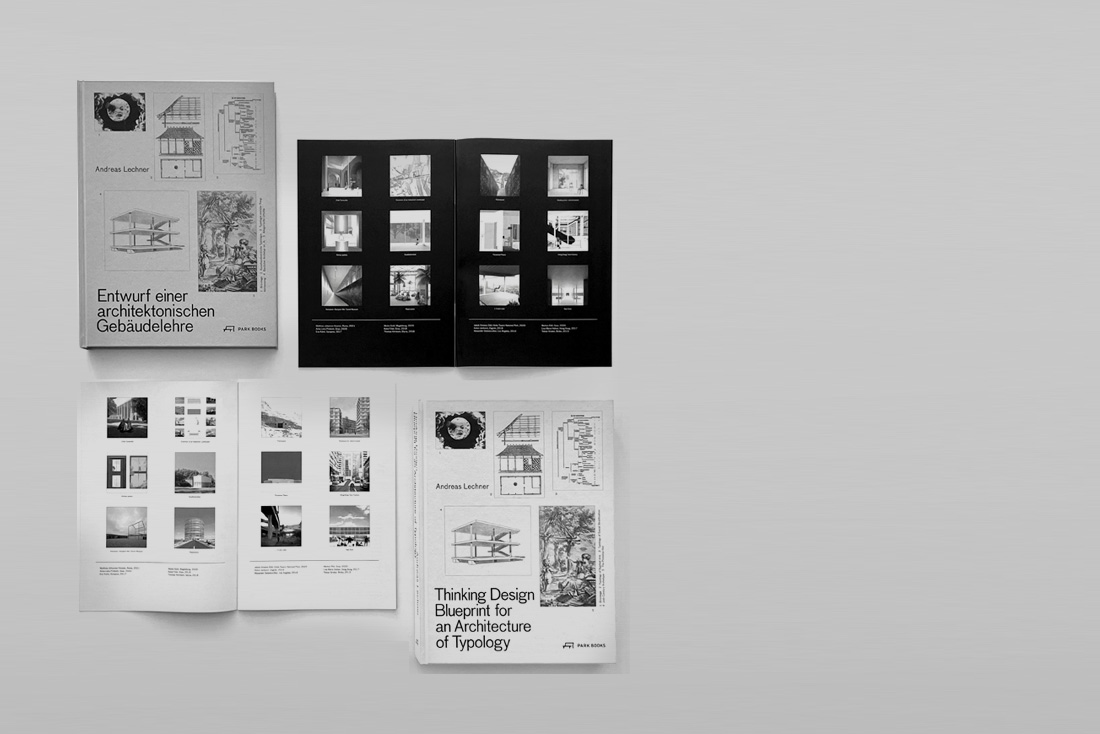
"Counterintuitive Typologies" began as appended brochure to "Thinking Design" (2021)—collecting extracts from 12 supervised master’s theses since 2015 that explored peripheral and commercial vernaculars through precise drawings and conceptual revaluations of city edges, infrastructural and political voids, continuous building, and possible future monuments.
Through the sustained practice of reading and redrawing building types—uncovering their latent affordances and reimagining their transformation within an evolving discipline—a substantial body of master’s theses emerged. These works expanded typological inquiry toward questions of adaptive reuse, urban peripheries, and hybrid programmes, testing the resilience and malleability of types in contexts ranging from small-town strip malls to metropolitan housing blocks.
Each project, while grounded in disciplinary continuity, advanced counterintuitive appropriations that demonstrated how typology can be mobilized as a tool of ecological responsibility, social encounter, and architectural imagination—and thereby as a living medium of transformation.
(More)
Projects within the Counterintuitive Typologies Research Group since 2021: (1) CBT – Counterintuitive Building Types, FFG-funded Research project, TU Graz, 2022–2025; (2) Architectural Affordances – Typologies of Umbau, Fellowship, Research project & Publication with Politecnico di Milano; (3) Peripheries – Peripherocene (Research cooperation with Northumbria University, special issue of The Journal of Architecture, 2023–2026 with Cameron McEwan); (4) Hybrid Practices (Special issue of Archnet-IJAR, 2026 with Cameron McEwan); (5) PhD Project by Ena Kukić (Memoryscapes of Post-Yugoslavia - Toward a Typology of Monumental Semiosis, expected 2025); (6) PhD Project by Sabine Kastner (Sports and Social Clubs - A Buenos Aires Typology, exp. 2027), (7) Thinking Design – Blueprint for an Architecture of Typology (Park Books, 2021); (8) selected Design Studios & Seminars (TU Graz, TU Berlin, Politecnico di Milano, 2021–ongoing), and (9) selected Master’s Theses (TU Graz & Double Degree Polimi–ongoing).
Counterintuitive Typologies
Research Group (TU Graz)
Associate Professor
Dr. Andreas Lechner
Copyright
The information provided by the individual institutes and other facilities of Graz University of Technology as well as the other information providers is compiled independently by them, and entered into the system.
© Copyright unless otherwise indicated of Andreas Lechner or the authors or of Graz University of Technology
Privacy Statement
Datenschutzerklärung
For more information on privacy: http://datenschutz.tugraz.at
Supported by cargo.site
Last update: 02/02/2025
![TU Graz]()
Funded by FFG - Austrian Research Promotion Agency
![FFG]()
Research Group (TU Graz)
Associate Professor
Dr. Andreas Lechner
Copyright
The information provided by the individual institutes and other facilities of Graz University of Technology as well as the other information providers is compiled independently by them, and entered into the system.
© Copyright unless otherwise indicated of Andreas Lechner or the authors or of Graz University of Technology
Privacy Statement
Datenschutzerklärung
For more information on privacy: http://datenschutz.tugraz.at
Supported by cargo.site
Last update: 02/02/2025
Funded by FFG - Austrian Research Promotion Agency

Liability
The entire content of the Counterintuitive Typologies website has been compiled with the greatest care and to the best of our knowledge. However, we can assume no liability for the actuality, completeness and correctness of all the web pages. Content shall be removed immediately from the time that knowledge of a specific infringement of rights is obtained; TU Graz shall not be held liable before this time.
This website contains links to the websites of third parties; TU Graz has no influence over the content of such websites and shall therefore assume no liability for them.
The relevant information provider of the website shall be held responsible for the content and correctness of this information. When the link to the website of the third party was inserted, no infringements of rights were discernible. If TU Graz is made aware of an infringement of rights, the relevant link shall be removed immediately.
The content and works published on this website are subject to copyright. Any kind of reproduction, editing, dissemination and any kind of use beyond the limits of the copyright shall require the prior written consent of the relevant author.
The entire content of the Counterintuitive Typologies website has been compiled with the greatest care and to the best of our knowledge. However, we can assume no liability for the actuality, completeness and correctness of all the web pages. Content shall be removed immediately from the time that knowledge of a specific infringement of rights is obtained; TU Graz shall not be held liable before this time.
This website contains links to the websites of third parties; TU Graz has no influence over the content of such websites and shall therefore assume no liability for them.
The relevant information provider of the website shall be held responsible for the content and correctness of this information. When the link to the website of the third party was inserted, no infringements of rights were discernible. If TU Graz is made aware of an infringement of rights, the relevant link shall be removed immediately.
The content and works published on this website are subject to copyright. Any kind of reproduction, editing, dissemination and any kind of use beyond the limits of the copyright shall require the prior written consent of the relevant author.
When a user visits a website of TU Graz, information about his/her access (for example, the date, time, page accessed) can be stored. This does not constitute any analysis of personal data (e.g. name, address or email address). If personal data is collected, this is done so with the prior consent of the website user. Any transmission of the data to third parties shall not take place without the user’s express consent.
TU Graz states explicitly that the transmission of data on the Internet (e.g. by email) can pose security risks. Complete data protection against access by third parties cannot be guaranteed. TU Graz shall assume no liability for any damage incurred as a consequence of such security risks. The use of published contact details by third parties for the purpose of advertising is explicitly prohibited. TU Graz reserves the right to take legal action in the event that unsolicited advertising information is sent (e.g. in the form of spam emails).
Contact
Andreas Lechner
c/o “Counterintuitive Typologies”
Institute of Design & Building Typology
Graz University of Technology
Lessingstrasse 25/IV
A-8010 Graz
Austria
E: andreas.lechner (at) tugraz.at
TU Graz states explicitly that the transmission of data on the Internet (e.g. by email) can pose security risks. Complete data protection against access by third parties cannot be guaranteed. TU Graz shall assume no liability for any damage incurred as a consequence of such security risks. The use of published contact details by third parties for the purpose of advertising is explicitly prohibited. TU Graz reserves the right to take legal action in the event that unsolicited advertising information is sent (e.g. in the form of spam emails).
Contact
Andreas Lechner
c/o “Counterintuitive Typologies”
Institute of Design & Building Typology
Graz University of Technology
Lessingstrasse 25/IV
A-8010 Graz
Austria
E: andreas.lechner (at) tugraz.at